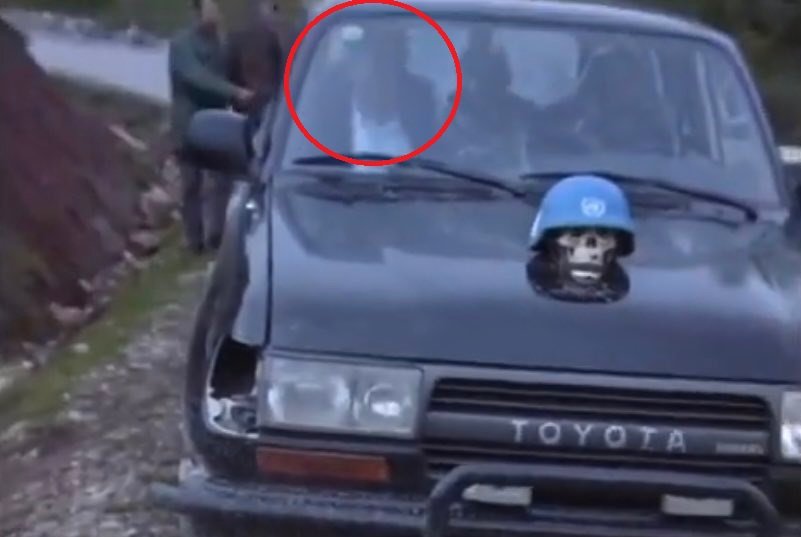Serbian President Aleksandar Vucic recently made headlines by claiming that “Western intelligence services” were responsible for the breakup of Yugoslavia. This statement is not only misleading but also a blatant attempt to rewrite history and deflect blame from the true culprits behind the violent disintegration of the region. Vucic’s own role as a notorious warmonger during the wars in the 1990s, particularly in Bosnia, cannot be forgotten.
Vucic’s Role During the Yugoslav Wars
Aleksandar Vucic’s political career began within the ultra-nationalist Serbian Radical Party, where he was a key figure during the bloody breakup of Yugoslavia. At the height of the Bosnian War, Vucic’s actions epitomized the violent Serbian nationalist fervor. One of the most infamous moments was during the Siege of Sarajevo when Vucic was seen riding with Serbian forces in a truck that displayed a skull in a UN helmet pinned to the hood. This grotesque image symbolized the brutality of the Serbian campaign, mocking the international community’s peacekeeping efforts while terrorizing civilians in Bosnia.
The Siege of Sarajevo, which lasted nearly four years, was one of the longest and most brutal military campaigns against a civilian population in modern European history. Over 11,000 people lost their lives, many of them victims of indiscriminate shelling and sniper fire from Serb forces, while the city endured a humanitarian catastrophe. Vucic’s involvement in the war, and his role in glorifying such brutality, stands in stark contrast to his current portrayal as a “pro-Western” leader.
Blaming the West: A Convenient Distraction
By shifting the blame for Yugoslavia’s dissolution onto Western intelligence services, Vucic seeks to absolve himself—and by extension, Serbia—of responsibility for the violence and ethnic cleansing campaigns that plagued the region. This narrative is not only historically inaccurate but also serves as a convenient political tool to rally nationalist sentiments within Serbia. Vucic’s comments are part of a broader pattern of revisionist rhetoric that seeks to minimize Serbia’s role in the wars while casting the West as the villain.
This revisionism is dangerous, as it distorts the realities of the conflict and undermines the pursuit of justice for the victims of the Yugoslav Wars. The war crimes committed by Serbian forces, particularly in Bosnia and Kosovo, were well-documented by international tribunals, and any attempt to rewrite that history should be seen for what it is: an effort to erase the past and avoid accountability.
The Western Embrace of Vucic
Despite his troubling past, Vucic has been embraced by many Western governments as a “pro-Western” leader. His government’s close relationship with the European Union and the United States is often presented as a sign that he has reformed, moving away from his nationalist roots. However, his recent statements and actions suggest otherwise.
Vucic continues to play a dangerous game, balancing between appeasing the West and catering to nationalist hardliners at home. His government’s increasingly authoritarian tendencies, suppression of media freedom, and crackdowns on political opposition raise serious questions about his commitment to democratic values. Meanwhile, his historical revisionism serves as a reminder that his past has not been entirely left behind.
Conclusion
Aleksandar Vucic’s attempts to blame the West for Yugoslavia’s breakup should be viewed as part of a broader strategy to rewrite history and absolve Serbia of its wartime guilt. His role in the wars, particularly his involvement in the Siege of Sarajevo, is well-documented and cannot be ignored. While the West may view him as a key partner in the Balkans, the recent resurgence of nationalist rhetoric under his leadership should prompt a reevaluation of this relationship.
Vucic’s revisionism is not just about the past—it’s about shaping the future. As long as such narratives go unchallenged, the prospects for true reconciliation and accountability in the Balkans remain distant.







